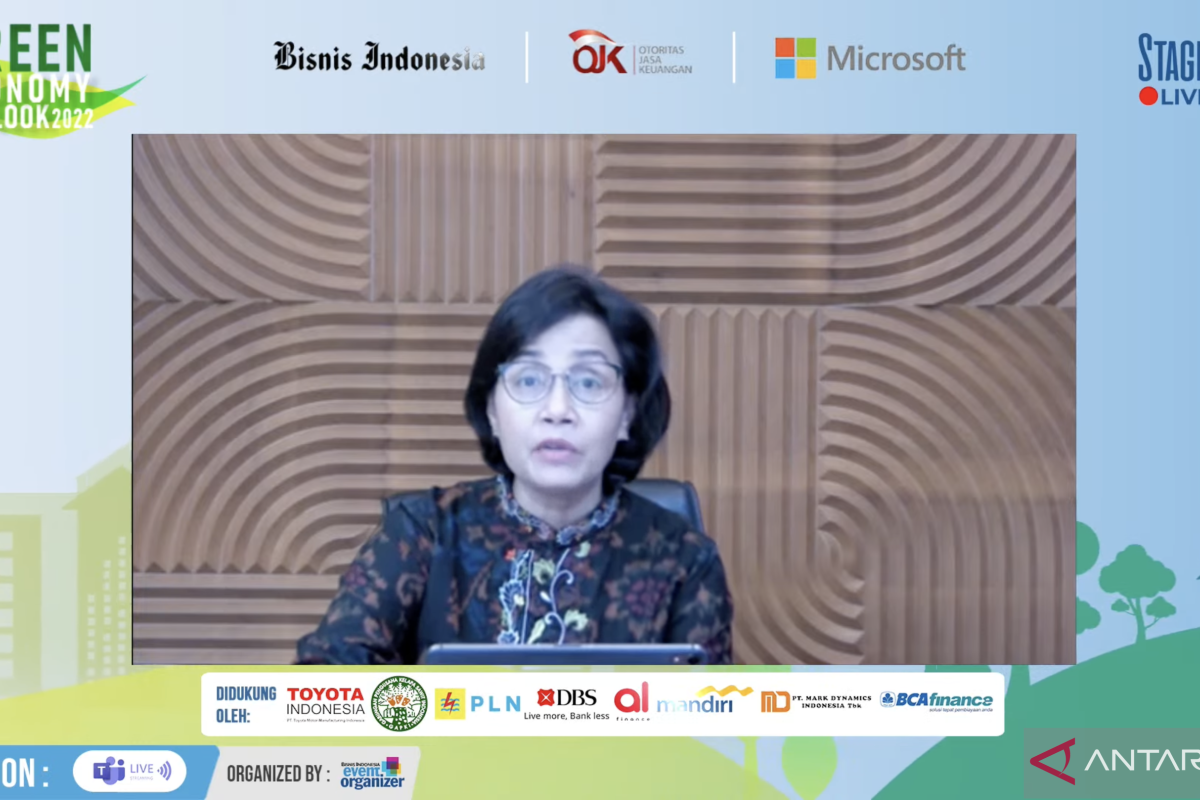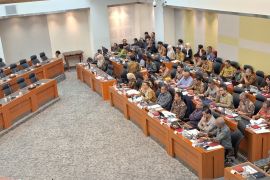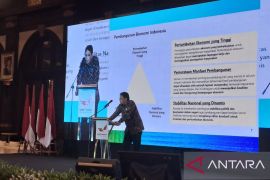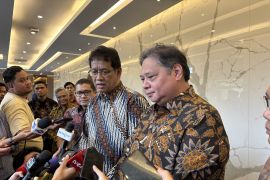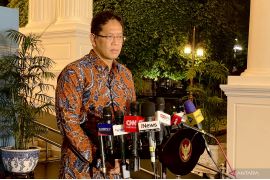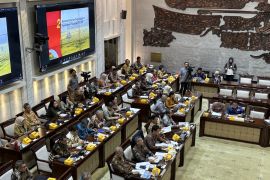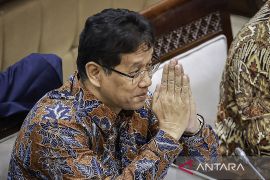The figure of Rp3,461 trillion until 2030 is a significant number, the State Budget in the fiscal framework will attempt to support the carbon reduction programJakarta (ANTARA) - The COVID-19 pandemic had brought a good impact on climate change due to a decline in economic activities, according to Finance Minister Sri Mulyani Indrawati.
"Economic activities in the world are experiencing declines during the pandemic. The declines are able to reduce pollution, thereby resulting in a decrease in global CO2 emissions by 6.4 percent in 2020," Mulyani noted during his speech at the 2022 Green Economy Outlook, Tuesday.
The restriction in community activities had a major impact on the economy. However, in terms of carbon or CO2 emissions, which raised world temperatures, the pandemic was able to reduce CO2 emissions to 2.3 billion tons of CO2, she noted.
"Surely, this is not something that we want where we must choose between saving the world from climate change or saving lives during the pandemic and also the condition of the people's welfare," Indrawati stated.
Related news: Ministry to assist 3,270 villages in managing waste
However, the minister is optimistic that people around the world would continue to conduct economic activities, especially for developing nations, including Indonesia, to implement development programs for the community's welfare, though still be able to reduce carbon emissions to avoid catastrophic consequences of climate change.
Furthermore, based on the calculation of the Second Biennal Update Report 2018, specializing in funding computation, Indonesia needed Rp3,461 trillion until 2030 to reduce CO2 emissions.
"The figure of Rp3,461 trillion until 2030 is a significant number, the State Budget in the fiscal framework will attempt to support the carbon reduction program," she remarked.
Related news: G20 a momentum to discuss climate issues thoroughly: expert
The government, in terms of the state revenue, has provided incentives for the business world to invest in the green economy. The government also provided tax holidays, tax allowances and exemption from import duties, reduction of added-value tax, and income tax borne by the government.
This includes the Law in the Harmonization of Tax Regulations that is an instrument to introduce a carbon tax in order to encourage business owners, especially from the private sector, to include or internalize economic consequences in the form of carbon emissions.
"Thus, Indonesia will be able to continue its economic activities but with a higher and more complete awareness to take concrete steps to reduce the crisis or potential crisis from climate change," Indrawati concluded.
Related news: President ensures no damage to forests in new capital development
Related news: Ocean research in Indonesia still lacking: BRIN
Translator: Kuntum Khaira R, Resinta S
Editor: Fardah Assegaf
Copyright © ANTARA 2022
